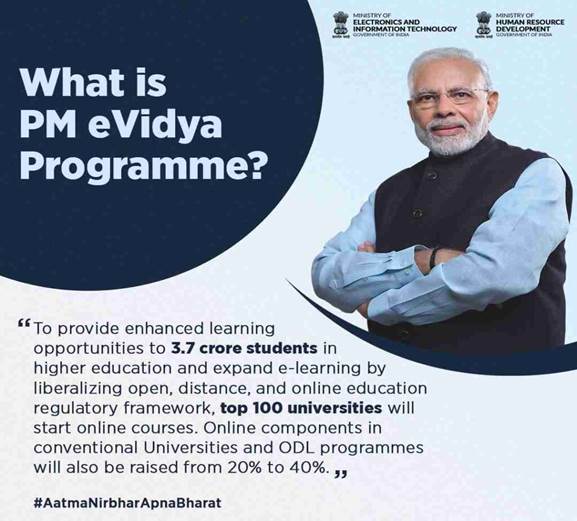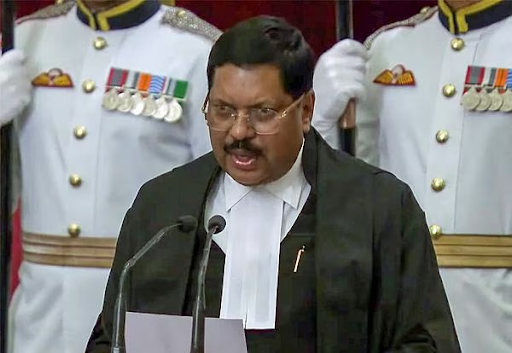Description

Copyright infringement not intended
Context - India received UNESCO’s recognition for the use of ICT in school education.
Details
- Use of ICT (Information and communications technology) under the initiative of PM eVIDYA wins UNESCO’s recognition.
- The PM eVIDYA programme was initiated as a part of the Atma Nirbhar Bharat Abhiyaan by the Ministry of Education in May 2020.
- The objective was to promote digital/online/on-air education to enable multi-mode access for imparting education by using technology to minimise learning losses.
- Central Institute of Educational Technology (CIET), a unit of the National Council of Educational Research and Training (NCERT) under the Ministry of Education (MoE) has been awarded the UNESCO’s King Hamad Bin Isa Al-Khalifa Prize for the Use of ICT in Education for the year 2021.
Concern
- India has achieved universal enrolment at the elementary level. This is a great achievement, but getting Students to School is only the beginning of human Capital formation.
- Poor quality of facilities, Shortage of qualified faculty.
- Out of date Curriculum, Limited university-industry Partnership.
- Broken governance System. There are few rewards for being a good teacher and few Punishments for being a Careless one. Need more effective and accountable governance Systems.
- The greed of Private Colleges to earn the maximum from every Student puts traumatic Pressure on Students which results in mental breakdown.
- More girls than boys drop out of School. While boys drop out to work, girls usually Stay at home and help with domestic Work. Social Conception of gender roles is an important factor.
- Learning loss due to pandemics and the digital divide.
Steps by the Government to Reform Education Sector
- The 86th Constitution Amendment provides the Fundamental right to free and compulsory education under Article 21A includes a Common education System where the “rich and Poor are educated under one roof".
- Rashtriya Uchchatar Shiksha Abhiyan provides funding to eligible State higher educational institutions.
- Declaration of Educational Institutions as institutions of Eminence, to provide world-class education to Indian Students within the Country.
- Creation of Higher Education Financing Agency, for high-quality infrastructure in Premier educational institutions.
- National Institution Ranking Framework for ranking our higher education institutions.
- GIAN Initiative to invite distinguished academicians, entrepreneurs, scientists, and experts from premier institutions across the world to teach in higher educational institutions in India.
- SWAYAM Portal for online Courses.
- SWAYAM Prabha Provide HD educational Channels through DTH on a 24X7 basis.
- Sodhganga to develop a national repository of universities in India, and digital Study material for higher education.
- Samagra Shiksha Scheme to ensure inclusive and equitable quality education at all levels of school education.
- The government is encouraging Open Online Courses via Swayam Platforms So that Students Can have access to quality lectures online.
- Artificial Intelligence (AI) can be used to Provide Personalised instructions based on Student needs.
- The government needs to work on improving digital infrastructure and ensure that students have access to mobile phones or laptops.
https://www.pib.gov.in/PressReleasePage.aspx?PRID=1835296
1.png)
https://t.me/+hJqMV1O0se03Njk9














